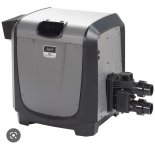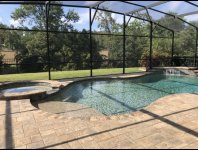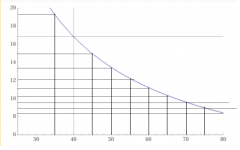I’m hoping someone here might have some good advise for figuring out why my pool heater is not heating the water.
I have a Jandy JXi gas pool heater (similar to the one pictured). The heater turns on and fires up. The blower is working and there is heat coming from the exhaust (it’s acting the same as it always has). But, the water coming out of the jets and water fall is not in the least bit hot. Almost as if the water is flowing through an internal bypass (there is no external bypass) and not through the heater. This is where I’m stuck.
What would cause this and how would I troubleshoot it to determine the cause? Any input would be greatly appreciated. Thanks!
I have a Jandy JXi gas pool heater (similar to the one pictured). The heater turns on and fires up. The blower is working and there is heat coming from the exhaust (it’s acting the same as it always has). But, the water coming out of the jets and water fall is not in the least bit hot. Almost as if the water is flowing through an internal bypass (there is no external bypass) and not through the heater. This is where I’m stuck.
What would cause this and how would I troubleshoot it to determine the cause? Any input would be greatly appreciated. Thanks!




